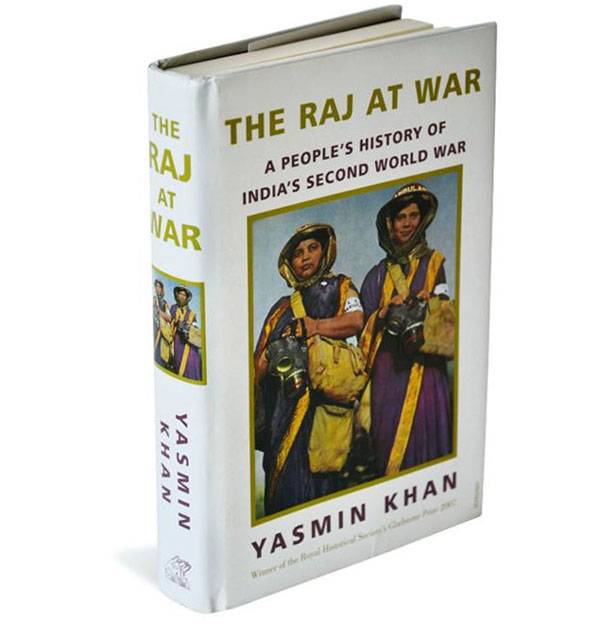
The Raj at War
Yasmin Khan
Random House (hardcover), 2015
PRs 1300
India at War: The Subcontinent and the Second World War by Yasmin Khan is the history of India’s involvement in World War II both inside and outside its borders. Khan is Associate Professor of History; Fellow of Kellogg College at Oxford University. Her DPhil is from Oxford, in the History of the British Empire. She has taught at the Universities of Edinburgh and Royal Holloway, University of London.
Little was known of India’s role in WWII before reading India at War. Indian units in WWI fighting as part of the British Empire produced an impressive of Victorian Cross winners. Khan mentions this when talking about early recruitment in WWII. Older men, at the mention of war, would proudly display the medals they had earned in Europe and the Middle East. The people of Punjab seemed the proudest of their military tradition.
India itself was a strategic piece of land. With China slipping to the Japanese, India played a strategic role in resupplying the Chinese and as a barrier to Japanese expansion. Pro-independence India was thrilled when the Americans came to India. They saw an idealized image of America and hoped it would mean independence for them after the war. This hope faded as Indians saw how the black American soldiers were treated — much in the same way the British treated the Indians.
Khan not only covers the mechanics of India during the war but also the growing independence movement.
Khan presents a detailed history of India during the war. It is much more than a history of a country at war, but a history of a diverse people looking to regain their identity. There is bravery on the part of Indian soldiers and bravery of those at home. Although devastating, World War II may have hastened Indian independence. India earned respect in the eyes of many nations, including Britain. India at War is an important piece of history that is not very well known in America. This is an essential reading for those wanting to know the bigger picture of the world history, outside American blinders.
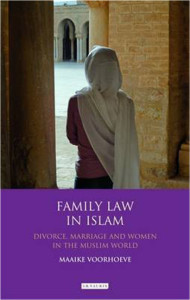
Family Law in Islam: Divorce, Marriage and Women in the Muslim World
Edited by Maaike Voorhoeve
IB Tauris (paperback), 2012
PRs 2145
In both the West and throughout the Muslim world, Islamic family law is a highly - and hotly - debated topic. In the Muslim World, the discussions at the heart of these debates are often primarily concerned with the extent to which classical Islamic family law should be implemented in the national legal system, and the impact this has on society. Family Law in Islam highlights these discussions by looking at public debates and legal practice. Using a range of contemporary examples, from polygamy to informal marriage (zawaj ‘urfi), and from divorce with mutual agreement (khul’), to judicial divorce (tatliq), this wide-ranging and penetrating volume explores the impact of Islamic law on individuals, families, and society alike from Morocco to Egypt and from Syria to Iran. It thus contains material of vital importance for researchers of Islamic Law, Politics, and Society in the Middle East and North Africa.
Review
‘Family Law in Islam, is innovative and refreshing. Not so long ago, Western studies in this field would mainly consist of comparisons between the texts of the new laws with the classical doctrines of the Sharia in order to evaluate the reforms as “progressive,” or even “daring” (as in the case of Tunisia), or “conservative.” This book is not judgemental but instead focuses on practice (including local discourses as a practice), rather than on cultural or religious suppositions. If Islam plays a role in their analysis, it is because practitioners and litigants use it themselves as a concept, and not because family law is a priori regarded as inherently Islamic. This volume addresses family law issues in six MENA countries from a variety of perspectives and methodological approaches and deals with the latest developments. A must-read for those interested in the law and the gender issues in the Middle East.’ - Ruud Peters, Professor of Arabic and Islamic Studies, Faculty of Humanities, University of Amsterdam
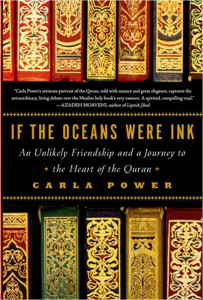
If the Oceans were Ink: An Unlikely Friendship and a Journey to the Heart of the Quran
Carla Power
Holt (paperback), 2015
PRs 1850
PULITZER PRIZE FINALIST • NATIONAL BOOK AWARD FINALIST • Hailed by The Washington Post as “mandatory reading,” and praised by Fareed Zakaria as “intelligent, compassionate, and revealing,” a powerful journey to help bridge one of the greatest divides shaping our world today.
If the Oceans Were Ink is Carla Power’s eye-opening story of how she and her longtime friend Sheikh Mohammad Akram Nadwi found a way to confront ugly stereotypes and persistent misperceptions that were cleaving their communities. Their friendship-between a secular American and a madrasa-trained sheikh-had always seemed unlikely, but now they were frustrated and bewildered by the battles being fought in their names. Both knew that a close look at the Quran would reveal a faith that preached peace and not mass murder; respect for women and not oppression. And so they embarked on a yearlong journey through the controversial text.
A journalist who grew up in the Midwest and the Middle East, Power offers her unique vantage point on the Quran’s most provocative verses as she debates with Akram at cafes, family gatherings, and packed lecture halls, conversations filled with both good humor and powerful insights. Their story takes them to madrasas in India and pilgrimage sites in Mecca, as they encounter politicians and jihadis, feminist activists and conservative scholars. Armed with a new understanding of each other’s worldviews, Power and Akram offer eye-opening perspectives, destroy long-held myths, and reveal startling connections between worlds that have seemed hopelessly divided for far too long.
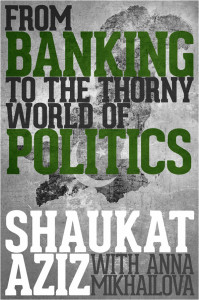
From Banking to the Thorny World of Politics
Shaukat Aziz
Quartet (hardcover), 2016
PRs 2995
An insider’s account from the heart of the war on terror. Shaukat Aziz left a thirty-year career as a senior Citibank executive to join a military regime in Pakistan, following a coup in 1999. Two years later, 9/11 made Pakistan a vital strategic ally in the war on terror. This is an insider’s account of what it was like to hold high office in a nuclear power in one of the most challenging parts of the world. First as finance minister, then prime minister, Aziz steered a major economic turnaround and negotiated Pakistan’s aid package with the United States. He survived a suicide bombing by Al Qaeda, which drove him to engage in the fight against global terrorism. Aziz draws on his first-hand experiences in office, as well as hundreds of hours of interviews with the global players who shaped our world. From Donald Rumsfeld to General James Jones to Tony Blair, they give their take on the policy decisions of their time and the geopolitical environment today. From Banking to the Thorny World of Politics analyses Islamabad’s relationship with Washington, its dealings with Afghanistan, Benazir Bhutto’s fateful comeback, the attempted Kashmir peace settlement - and what Pakistan really knew about Osama Bin Laden’s whereabouts.
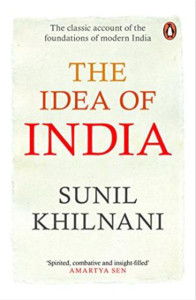
The Idea of India
Sunil Khilnani
Penguin (paperback), 2003
PRs 800
A profound meditation on the meaning and significance of India, which, Khilnani (Politics/Univ. of London) argues, has a far wider relevance than it is conventional to suppose. The relevance comes in part, of course, from the fact that India is the most populous democracy in the world and that it, unlike most of the countries that became independent in the post-war period, remained a democracy, with the exception of a 22-month "emergency" imposed by Indira Gandhi. This is curious, because there was little in India’s history to prepare it for democracy, and its independence caused the fearful bloodletting of Partition, when Pakistan gained independence. Khilnani calls Partition ``the unspeakable sadness at the heart of the idea of India”, which raises the question of whether it was a division of one territory between two nations or peoples, or the breaking of one civilization into two territories. He believes that the survival of democracy is largely attributable to Nehru’s exemplary adherence to democratic and parliamentary procedures during his long ascendency from 1947 to 1964 and that democracy has now ``irreversibly entered the Indian political imagination”. But the understanding of democracy has changed. The government has become more centralized and powerful, the stakes have become much higher, the studious secularism and religious tolerance of the earlier period have become more tenuous, and violence has grown. Democracy has come to mean adherence to the electoral process. In his most perceptive essays, Khilnani explores this new conception and what it now means to be an Indian.

